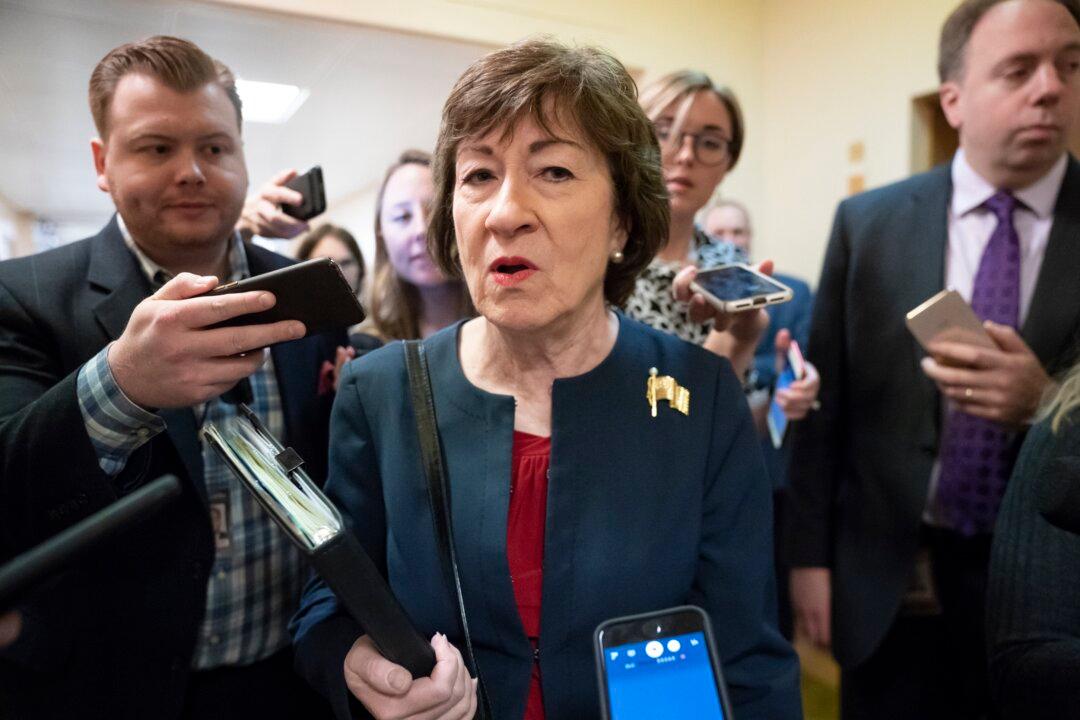Sen. Susan Collins (R-Maine) said she’s working with a “small group” of GOP Senators on allowing witnesses during the upcoming Senate impeachment trial.
House Democrats impeached Republican President Donald Trump on Dec. 18, 2019, but still have not transmitted the impeachment articles to the Senate, preventing the trial from starting. House Speaker Nancy Pelosi (D-Calif.) said Friday the articles could be sent over next week.





